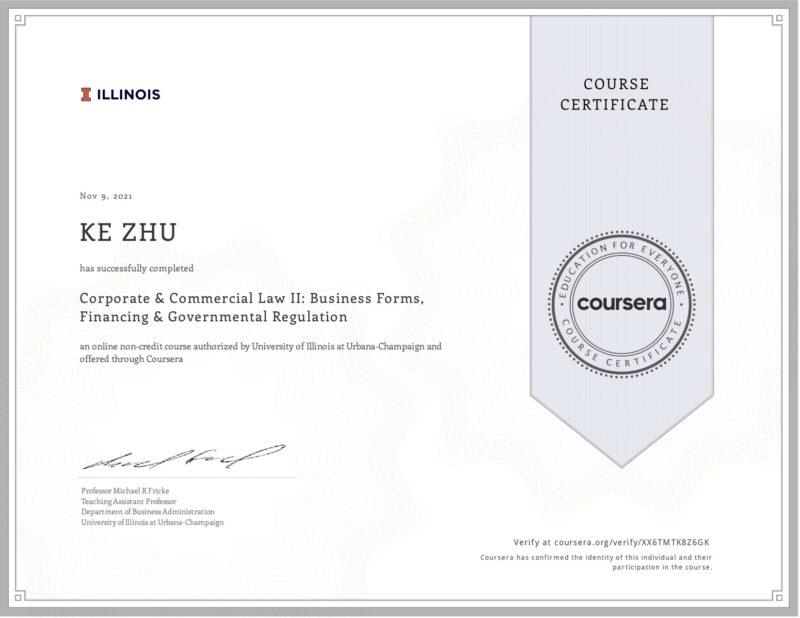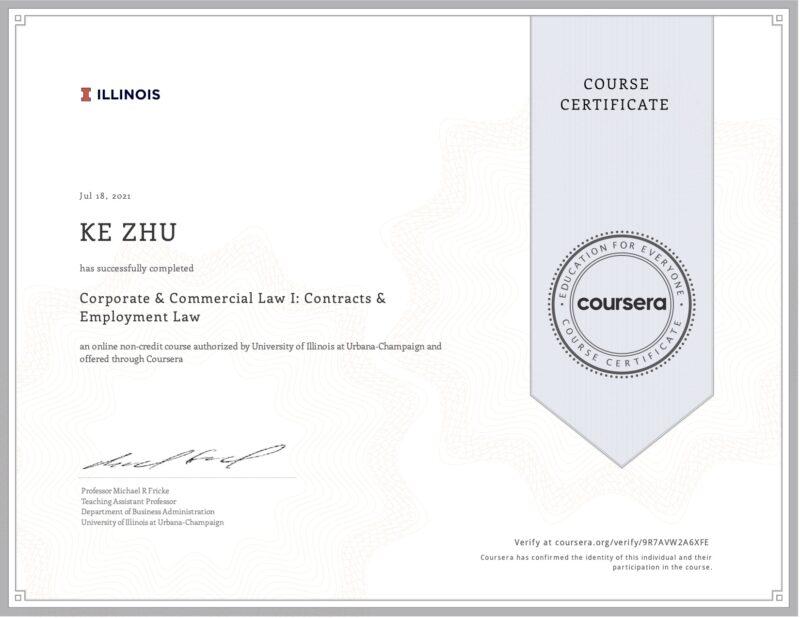Corporate & Commercial Law II: Business Forms, Financing & Governmental RegulationUniversity of Illinois at Urbana-Champaign University of Illinois offered lots of amazing business courses and this is one of them. This course first introduces various forms of business, among which LLC (Limited Liability Company) interests me a lot, which is quite modern and essentially a…
Tag: Michael Fricke
Administrative Regulations
Administrative Agencies Administrative agencies are government entities that are housed in the executive branch. They make rules, investigate violations, enforce rules. Every administrative agency only has power because Congress passed some statute (called enabling legislation) that gave it power. Executive agencies Firmly housed within the executive branch, do what the president says.E.g.: FBI. Independent agencies…
Debtor-Creditor Relationships
Bank Financing Sureties and Guarantors Sureties and guarantors are people who agree to be liable for a debt in the event that the primary debtor refuses to pay, or is unable to pay. In order to convince a bank to lend you some money, you can either gather up some collateral and pledge it as…
Forms of Business Organizations
Sole Proprietorship and General Partnership These are the 2 most fundamental forms of business entities. They are the only 2 forms of businesses you don’t need to register something with the state. Sole proprietorship One person engaged in business for profit Pro:Easy and cheep to create, no double taxation, owner has complete control Con:Unlimited personal…
My #62 course certificate from Coursera
Contracts & Employment LawUniversity of Illinois at Urbana-Champaign This is a very useful course for non-experts, because we all do business every day. The course firstly introduced all elements of a valid contract, a little theoretical, but instructive to help identify the reasons why an agreement is not enforceable. Besides rules from common law, the…
Agency and Employment Law
Agency Agency is nothing more than the idea that you give somebody else authority to act on your behave. There is a principal (the person in charge) and an agent (who takes on some responsibility from the principal). There are 4 types of common agency relationship: Agent’s Duties Agent’s Rights Principal’s Duties Principle’s Rights Tort…
Enforcement of Contracts
Third party beneficiaries Third party beneficiaries are people who benefit under a contract, but are not part to the contract. What rights do third party beneficiaries have? The answer depends on what type of beneficiary each of these parties is: ONLY intended beneficiaries can enforce agreements as a third party, who must have been vested….
Sales Contracts: UCC Article 2
UCC stands for Uniform Commercial Code, UCC Article 2 pertains sales of goods, which provides additional rules when it comes to contracts for the sales of tangible, movable goods. Sometimes a contract calls for both goods and services, in which case use “Predominant factor test’ to distinguish between them. The question is “What is the…
Basics of Contracts
A contract is nothing more than an enforceable agreement. The person who makes an offer is offeror, whose counter-party is offeree, who has the power to form a contract. ‘Valid contract’ mean either party can enforce it, in contrast ‘Void contract’ is unenforceable by either party. Some where in the middle between valid and void…








